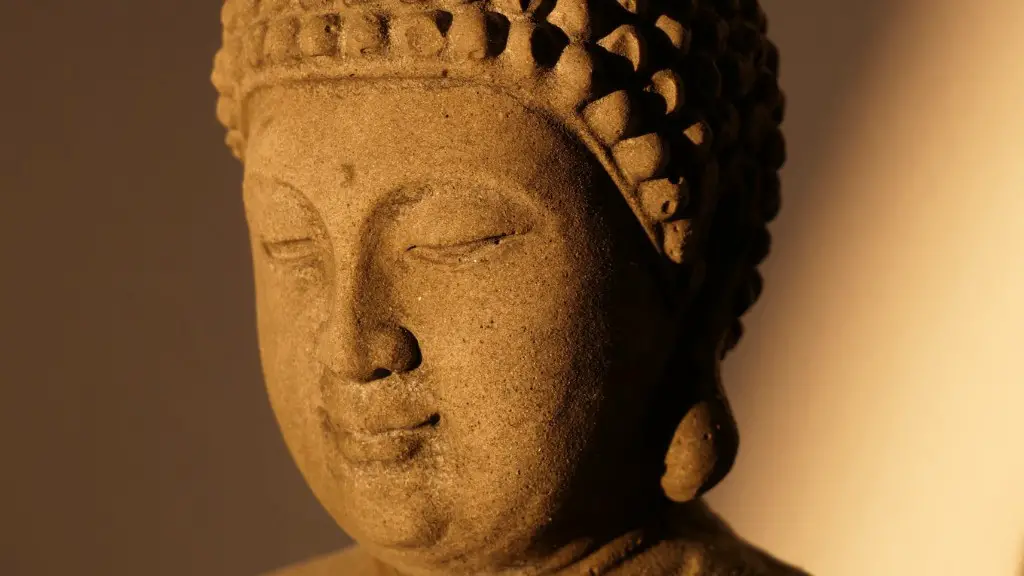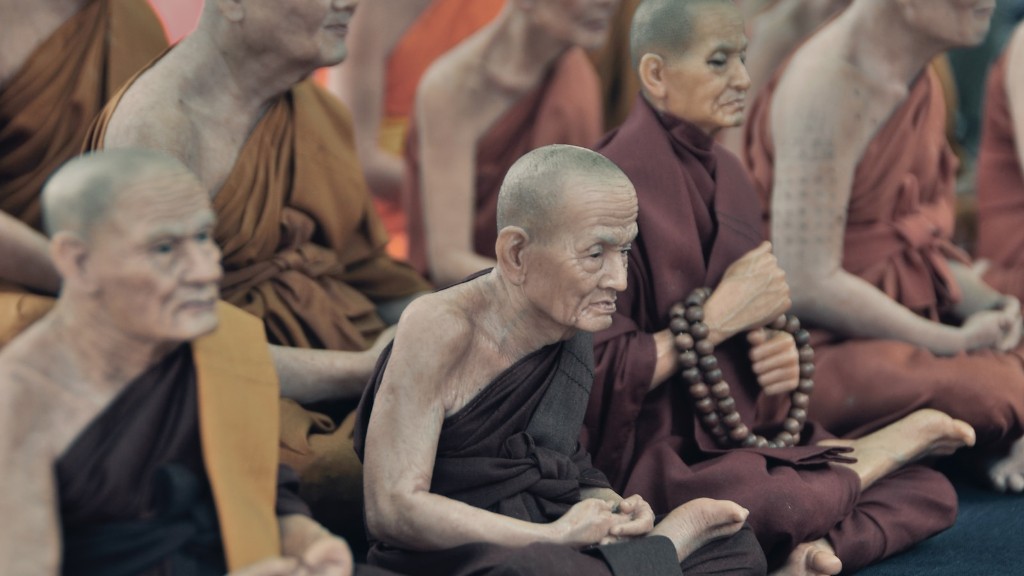Introduction to the Concept of God in Hinduism:
The concept of God in Hinduism is complex. It is not a simple, single identity but rather, a concept that has been developed over thousands of years to encompass a variety of phenomena. As such, it is difficult to precisely define or explain how the Hindu God works without diving into enormous theological debates. In essence, however, Hinduism’s God concept is based upon the belief in one supernatural entity that is both omniscience (all-knowing) and omnipresent (present everywhere). This God is considered to be held in the ultimate regard and is responsible for the creation, sustenance and destruction of the universe, as well as the order it maintains.
Worship of Hindu Gods:
Hindus worship many different gods and goddesses. There is no one single set of beliefs when it comes to who or what constitutes a Hindu God, though generally speaking many of the gods and goddesses in Hinduism are connected in some way. Some gods are linked to certain aspects of the universe or to specific spiritual or social functions, and many are interrelated and linked to others in some way.
The Ultimate Power or Beyond:
At the end of the day, Hinduism teaches that the ultimate power or “Beyond” is beyond even the gods and goddesses that are worshipped on earth. This is a difficult concept to explain, but essentially it is the belief that there is a being or force that exists outside of and beyond what can be seen or worshipped on earth. Hindus believe that this is responsible for the ultimate fate of all beings, both those on earth and those in the spiritual realm.
The Avatar Doctrine:
The doctrine of Avatar, which literally means “descent” in Sanskrit, is one of the core concepts in Hinduism. It holds that whenever Dharma (the cosmic order) becomes disrupted, an avatar of God is sent down to restore order and protect the righteous. This is often done through physical manifestations of the gods, as seen in such Hindu scriptures as the Ramayana and the Mahabharata.
The Concept of Isvara:
The concept of Isvara, a divine being or supreme power, is closely linked to many of the beliefs of Hinduism. Hindus often see Isvara as the ultimate spirit that controls the universe and upholds the cosmic order. Hindus also view certain deities, such as Vishnu and Shiva, as aspects or manifestations of Isvara.
The Role of Devotion:
Hindus believe that devotion to God is an integral part of their religion. Devotion to God takes many forms, but can most broadly be described as the practice of deep reverence and worship to God. Hindus often do this through the recitation of prayers, chanting of mantras, and acts of charity.
Understanding the Concept of Moksha
Moksha is a concept in Hinduism and other Indian religions that translates to spiritual liberation, freedom from the cycle of reincarnation, and the attainment of a higher state of existence. Moksha is seen as the ultimate goal of Hinduism and the way for one to achieve freedom from the material world. Hindus typically pursue moksha through the practice of dharma, the fulfilment of one’s duties, and the practice of yoga and meditation.
The path to moksha is different for everyone. Some believe that moksha can be found through knowledge and understanding, others believe that it can only be attained once one is liberated from the physical body. Some schools of thought consider moksha to be an individualistic, self-directed process focused on one’s personal liberation. Others view it as a collective process that requires support, guidance and grace from the divine to be achieved.
The concept of moksha has been explored in various Hindu scriptures and philosophical works. Some of these works suggest that moksha is only possible after a person has experienced the depths of suffering and transcended them to reach a higher plane of existence. Others define it as a state of unity and oneness with the divine. No matter what the interpretation or definition, moksha is seen as the highest realm of spiritual attainment for a Hindu.
Hinduism and Other Religions
Hinduism has been greatly influenced by many other religious and spiritual traditions throughout its long history. Hinduism is one of the oldest religious traditions still practiced today, and it has developed through interaction with other cultural and religious ideas. Notable influences on Hinduism include Buddhism, Jainism, Islam, and Christianity.
Hinduism has borrowed aspects from other religions and added its own unique perspective. For example, some aspects of Jainism, such as ahimsa (nonviolence), have been adapted into Hinduism. Similarly, Hindus have borrowed the concept of karma from Buddhism, which explains how an individual’s life experiences result from their previous actions.
The influence of other religions on Hinduism has also affected its beliefs about God. As Hinduism has interacted with other religious traditions, it has shaped and modified its concept of God. For example, some Hindus believe that there is a single, ultimate God that is responsible for the entire cosmos, yet others view God as a manifestation of many different divine powers.
In this way, Hinduism is forever evolving, adapting, and becoming more inclusive of new ideas and beliefs. This openness and acceptance of other religious traditions has allowed Hinduism to remain vibrant and flexible in the face of changing times.
Mythology of Hinduism
Hinduism has a rich and varied mythology that is full of complex stories and characters. Hindu mythology is an important source of knowledge, explanations of various spiritual concepts, and an avenue through which people can explore their relationship with the divine. These stories are filled with deities, demons, animals, kings, and many other characters, and they contain lessons and moral values that can help people better understand their faith.
The stories of Hindu mythology might appear to be fantastical, but they represent the wisdom and spiritual knowledge of the ages. They are often linked with religious rites, cultural practices, and rituals, and sometimes reflect ancient concepts about the origins of the universe and the creation of humanity. Furthermore, many of these stories serve to remind us about divine truths about the different aspects of humanity and the complexity of the universe.
Hindu mythology is integral to understanding the religion and provides an access point through which people can explore their own beliefs and values. The stories in Hindu mythology might seem strange, but the messages hidden within them are timeless and remain applicable even in modern times.
The Nature of Hinduism
Hinduism is known for its inclusiveness and its ability to adjust to the changing times. This is because Hindus generally believe that the divine is all-encompassing and can be manifested through various deities. Hindus do not hold to one single belief system,

